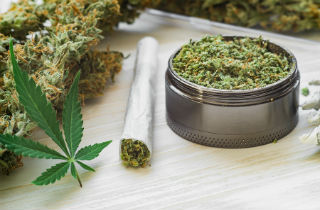Parents on Patrol: Teens, Drugs, and Marijuana
Human beings can justify pretty much anything with the smallest bit of supporting information, and for teens it does not take much for them to view marijuana use as a health benefit. It’s easy to understand their confusion, however. At the moment, twenty U.S. states support legal medical marijuana use. Throw into the mixed messages from the marijuana industry on billboards, television and radio commercials, newspaper ads and store-front promotional announcements touting the many positive benefits of the drug;and it’s no wonder their perception is misconstrued.
Dr. Paula Riggs, director of the Division of Substance Dependence in the psychiatry department at the University of Colorado School of Medicine was quoted in an EdNews Colorado article as stating, “There’s little question among doctors that marijuana can be beneficial for a small percentage of patients who have cancer, multiple sclerosis, glaucoma or nausea from HIV treatment. But that doesn’t mean it’s safe or healthy for kids. There’s no medical indication for medical marijuana in young people at all, it’s not a medication. There are 400 other chemicals and many carcinogens in smoked marijuana.”
Negative side effects of teen marijuana use
The good news is teens cannot usually overdose on marijuana alone. Hallucinogenic or psychoactive effects can be accelerated when marijuana is combined with other substances, including prescription drugs or alcohol. However, many health care professionals agree; marijuana use among teens bears many consequences; some of which can lead to death.
- Marijuana use can permanently change the brain which is still developing during the teen years.
- Compared to one in 25 adults, one in sixteens who try marijuana before the age of 18 will more than likely become an addict or abuse the drug.
- Medical professionals across the board, in-support of legal marijuana or not, agree that marijuana can be addictive – physically and mentally.
- Statistics tracking teens using marijuana indicate that this group is at a higher risk of abandoning their education, experimenting with unsafe sexual behaviors and are involved in more accidents (the number one killer of teens in the US) than kids not using the drug.
- Marijuana use before the age of 18 more than doubles the risk of developing psychosis.
Symptoms of Teenage Marijuana Drug Use
There are many warning signs that your child is on drugs:
- Becomes rebellious toward family rules, ignoring set curfew times
- Changes in appetite (higher or lower food intake)
- Drastic weight loss or gain
- Is always in need of money
- Is caught cheating or stealing
- Is in possession of drug paraphernalia (pipes, roach clips, cigarette rolling papers, seeds, glass vials)
- Is secretive about activities and new friends
- Loss of memory and attention span
- No longer wishes to participate in family activities
- Personality changes: anxious, confused, paranoid, depressed or mood swings
- Poor performance in school and a rapid decline in grades
- Shows little interest in exercise or sports
- Starts ditching school or showing up late to classes
- Starts sleeping during classes
- Uncharacteristically abusive verbally or physically
- Valuable items, cash or prescription drugs start to disappear from the home
Clearly some of the signs listed here are normal teenage traits; but if you begin to see more than one or two, look more closely at the whole picture and watch for the other signs. What can you do if your son or daughter is on drugs? Research the drug (also known as weed, grass, pot, reefers and Mary Jane) and be prepared to discuss your concerns. Seek professional help if necessary.








